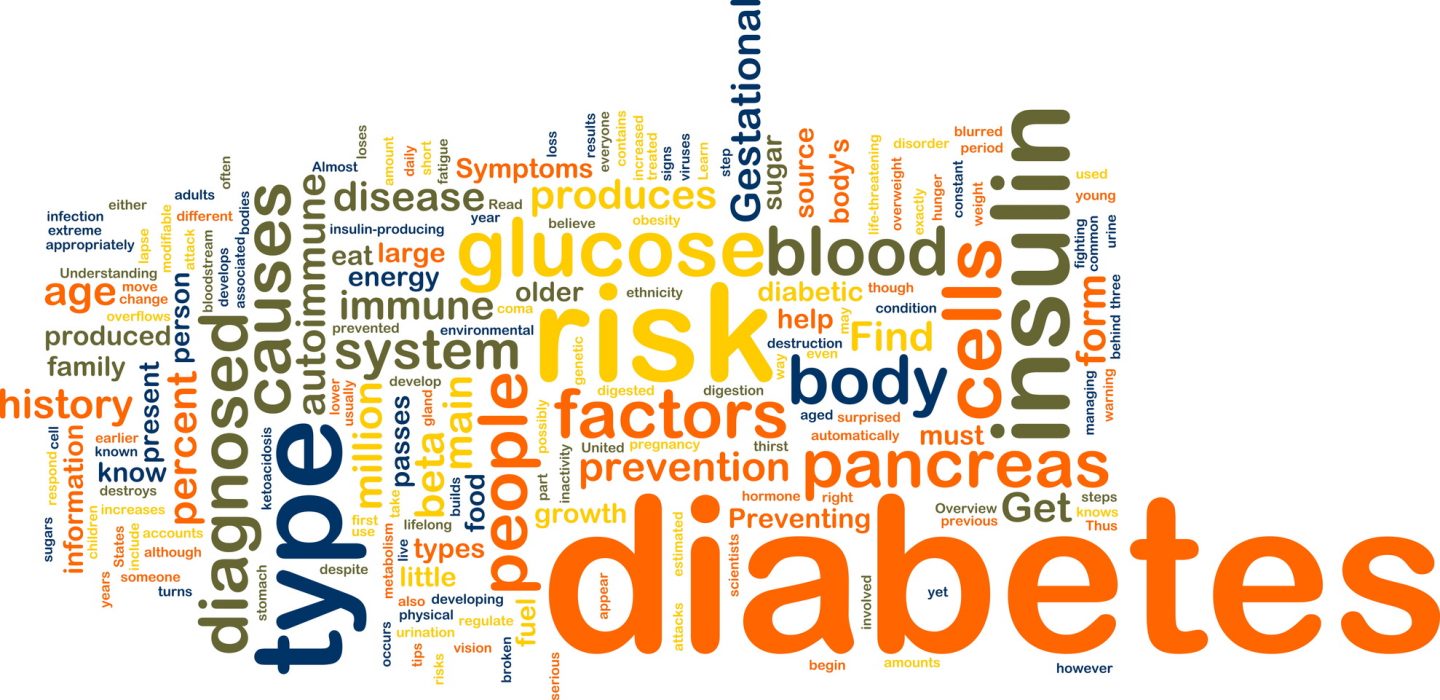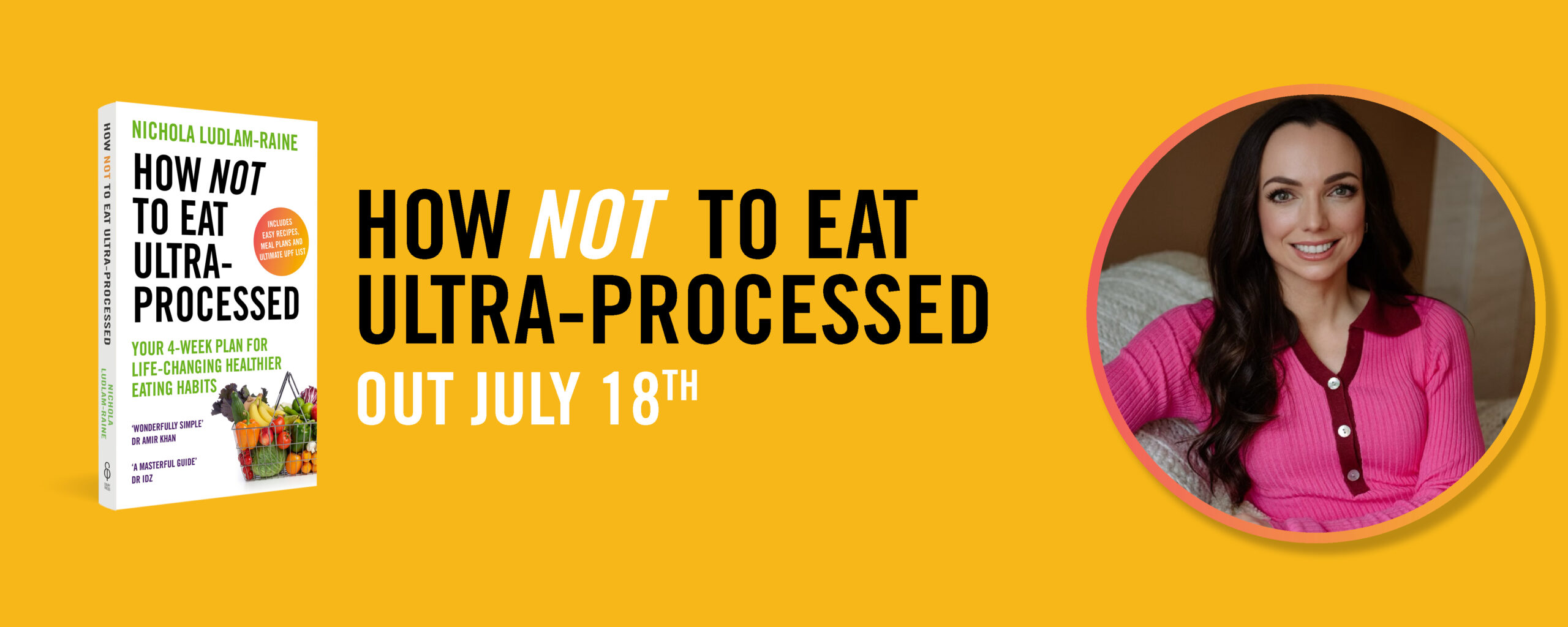
Recently, I’ve had quite a few requests to write a ‘healthy eating/lifestyle for diabetes’ post.. and so here it is! I have a passion for diabesity (diabetes & obesity) and have even published a paper in the area looking at the effects of caffeine on diabetes (click here to read more). So, if you, or someone you know has diabetes, or if you simply want to learn more about the condition, then carry on reading.
What is Diabetes?
Diabetes is a common condition where the amount of glucose in the blood is too high because the body cannot use it for energy. This happens because the pancreas (an organ in the body) doesn’t produce any insulin at all (type 1 diabetes), or doesn’t produce enough and/or the insulin that is produced does not work properly, which is known as insulin resistance (type 2 diabetes). Insulin is the hormone produced by the pancreas that allows glucose to enter the body’s cells, where it is used as fuel for energy. Insulin is often known as a ‘key’ as it ‘unlocks’ body cells to allow glucose to enter.
Glucose is the end product from the digestion of carbohydrates (carbs) and it is also produced by the liver (where glucose is stored as glycogen). There are starchy and sugary carbs and they include:
- Starchy carbs such as bread, rice, pasta, beans, lentils, oats and potatoes.
- Natural sugars such as fruit (fructose) and milk (lactose).
- Added sugars (sucrose) such as those found in sweets and biscuits.

What Causes the Main Types of Diabetes?
- Type 1 Diabetes is an autoimmune disease where the cells that produce insulin in the pancreas are destroyed. It is still unclear why type 1 diabetes occurs however it may be triggered by a virus or other infection. Type 1 diabetes can occur at any age but it usually happens before the age of 40.
- Type 2 Diabetes is more related to lifestyle and it usually occurs over the age of 40. You are more at risk of type 2 diabetes is one of your close family members has it, you’re overweight or your waist circumference is 31.5 inches or over for women; 35 inches or over for Asian men and 37 inches for white and black men (the Asian community genetically are more likely to develop diabetes), you have high blood pressure or have had a heart attack or stroke, or you are a woman with PCOS and are overweight.
How can you live Healthily with Diabetes?
The following tips will help you to lead a healthier, and happier life if you have diabetes:
1) Eat a Balanced Diet – You should eat three regular meals a day which will help to not only control your appetite but also your blood glucose levels, and:
- Make sure your carbs are low glyceamic index (GI), meaning the energy/glucose is released relatively slowly. Low GI carbs include; pasta, sweet potatoes, rye/granary breads, oats, muesli, pulses, lentils or basmati rice. Fill 1/4-1/3 of your plate with starchy carbs, depending on how active you are (a fist sized serving is ample though for most people).
- Aim to have at least 5 portions of fruit & veg a day (a portion is a handful). Fresh, frozen and tinned all count, just make sure that fruit is canned in juice and not syrup. Spread fruit throughout the day to avoid a large carb load all at once.
- Choose lower fat dairy foods such as semi-skimmed or skimmed milk, diet or sugar-free yoghurt (see my how to choose a healthy yoghurt post for more detail), cottage cheese and extra light cream cheese.
- Include lean protein at your main meals e.g. lean red meat, chicken with no skin, white fish, beans, lentils, nuts and seeds (nuts & seeds contain healthy fats which are good for your heart).
- Aim for at least two portions of oily fish a week (great source of omega-3 fatty acids which helps with blood flow). A portion is around a palm-size amount and sources of oily fish include mackerel, sardines, pilchards and fresh tuna (the canning process of tuna removes the healthy oils). Buy fish canned in water, or drain it if it’s canned in brine.
- Use heart-healthy olive oil and rapeseed oil (mono-unsaturated fats) sparingly instead of butter or ghee.
- Keep high fat and high sugar snacks to a minimum e.g. crisps, cakes, biscuits, chocolates, sweets. Choose sugar-free drinks instead of the sugar versions and don’t add sugar to hot drinks (use sweetener instead).
- Reduce salt intake. Excess salt (more than 6g a day) can lead to high blood pressure, a leading cause of stroke and heart disease. As 75% of the salt that we eat is already in foods aim to cut down on processed foods, salty foods such as crisps and salted nuts and flavour foods with herbs and spices instead of salt.
- Diabetes UK recommends that everyone with diabetes should see a registered dietitian at diagnosis, and then have regular reviews (you can ask your GP for a referral).
2) Be Active & Exercise – Aim for at least 30 minutes of moderate intensity exercise (where you feel hot and your heart is beating faster than usual) on at least 5 days of the week. You can split this 30 minutes up into 10-15 minute bouts if this suits you more. A way of checking how ‘active’ you are is to use a pedometer – it is recommended that we take 10,000 steps a day for health – how do you measure up to this?!
3) Maintain a Healthy Weight – Having a healthy weight means that your insulin will work as efficiently as possible, meaning that you can improve your diabetes with weight-loss alone (if you have a BMI of over 25, or over 23 if you are Asian). You can find out if you have a healthy BMI on the NHS website – remember though, if you have an exceptionally high muscle mass then you may have a high BMI because muscle is much denser than fat (it can make you weigh more) – check out my what is a healthy body fat % blog post for more information.
4) Don’t Smoke – Giving up smoking is one of the most positive things you can do to both improve your health and reduce the risks of long-term complications associated with diabetes such as heart-attack.
5) Manage your Stress & Sleep Well – Stress can cause blood glucose (blood sugar) levels, as well as blood pressure to rise, which is why it’s important to manage your stress (e.g. through relaxation periods or exercise) and to sleep well. Sleep helps your body to rejuvenate and repair itself and it also helps you to manage your hunger hormones.
6) Drink Alcohol (if you do drink it) in Moderation – Aim to have no more than 2-3 units a day if you are a woman, and 3-4 units a day if you are a man, with at least 2 alcohol free days a week. One unit of alcohol is the equivalent of: 1/2 pint of beer, 25ml of spirit, or 100ml of wine.
7) Take Prescribed Medications – Medication is prescribed for a purpose so you should a) take medication as prescribed and b) be honest with your doctor if you haven’t been taking it. I encourage everyone to ask their doctor exactly why they’re on certain medication as well as what they can do to prevent the need for any more (see points 1 to 6!!).
The Bottom Line?
Diabetes is a often described as a ‘progressive condition’ but I believe that this description is out-dated – we have shown time and time again how the power of lifestyle changes can halt or ‘reverse’ diabetes which means that the future of your health, and diabetes control is in your hands. Lifestyle first, medication second is what I say!



11 Comments